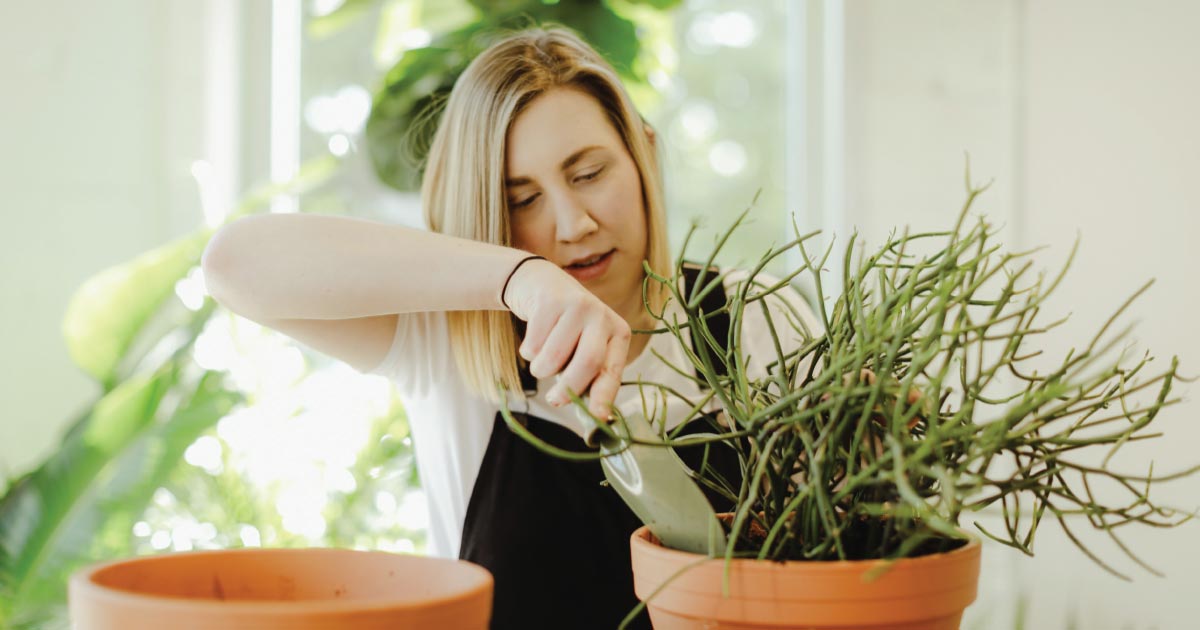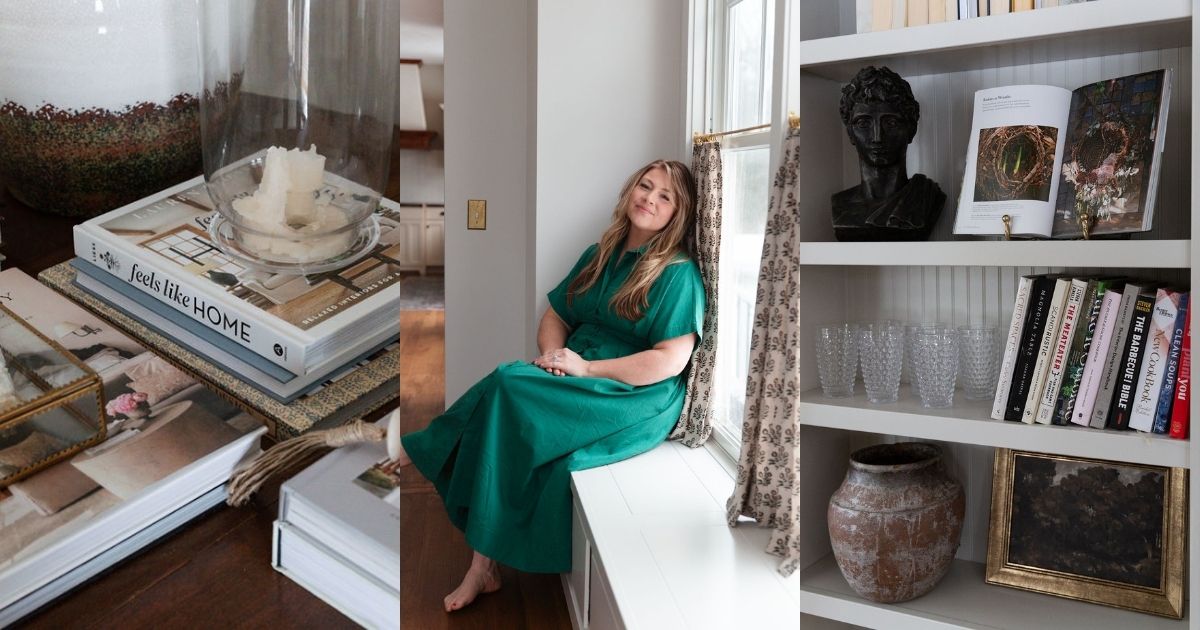Many people who have houseplants will enthusiastically tell you: the benefits of incorporating indoor plants into your home abound, especially during the winter months. And scientific research backs that up! Several studies—including the NASA Clean Air Study—have found that being around greenery offers a connection to lower anxiety and stress, increased air purification, enhanced cognitive skills, improved mood and more.
In addition to these perks, houseplants also have plenty to bring to the table when it comes to enhancing your decor and home's overall vibe. To learn more, we caught up with Erin Rappleye, owner of Plant Shop—a boutique plant shop in Grand Rapids that offers a large assortment of plants, planters, plant accessories, care items, custom plant design installations and more.
Rappleye has experienced firsthand how plants can affect your overall well-being.
"Personally, I've found a significant decrease in my seasonal affective disorder since opening Plant Shop," Rappleye said. "Plants offer kind of a two-fold solution to winter blues; being surrounded by the greenery we so desperately need in the winter and providing us an opportunity to care for something, which is therapeutic."
According to Rappleye, adding plants to a space in your home can help offer a feeling of being "complete."
"We work with so many clients shortly after a renovation or a move and it's always shocking how much plants contribute to the aesthetics of a home," Rappleye said, adding that many people really don't know what they've been missing until plants are added to their space. "I'd also say that it's as much about the plant as it is about the planter and how it pairs with the plant and the space."
If you feel like you don't necessarily possess the greenest thumb, worry not. Rappleye explains there are plants suitable for experience levels of all kinds.
"Most commonly, we start beginners with sansevierias (snake plants), zz plants, pothos and cacti. These are all plants that don't need a lot of attention, which give people the confidence to start expanding their collection," she said. "Although these are a great place to start, there are a ton of other options that are easy to maintain for beginners if they are set up for success."
It's imperative to buy plants from retailers who have a healthy selection and can give you proper direction on light requirements and watering, Rappleye explains, adding tips of her own for caring for indoor plants during the colder months.
"Be mindful of where your plants are placed in your home," she advised. "As we see less of the sun throughout the days in winter, your plants may need to be moved closer to the windows to actually receive the amount of light they were getting this summer."
However, it's vital to ensure your plants aren't near drafty windows or doors that will expose the plants to cold air.
"On the other hand, plants that are close to heating vents could dry out more quickly than you'd expect," Rappleye said. "Adjusting your watering schedule in the winter will almost always be necessary. Take into consideration the type of plant and its location in your home."
Rappleye also recommends plant owners have a moisture meter and humidifier—two small items that can be immensely helpful in caring for plants over the winter.
More plant tips, inspiration, products and events could be found at @plantshopgr.
Written by Sarah Suydam, Managing Editor for West Michigan Woman.
This article originally appeared in the Dec '22/Jan '23 issue of West Michigan Woman.




